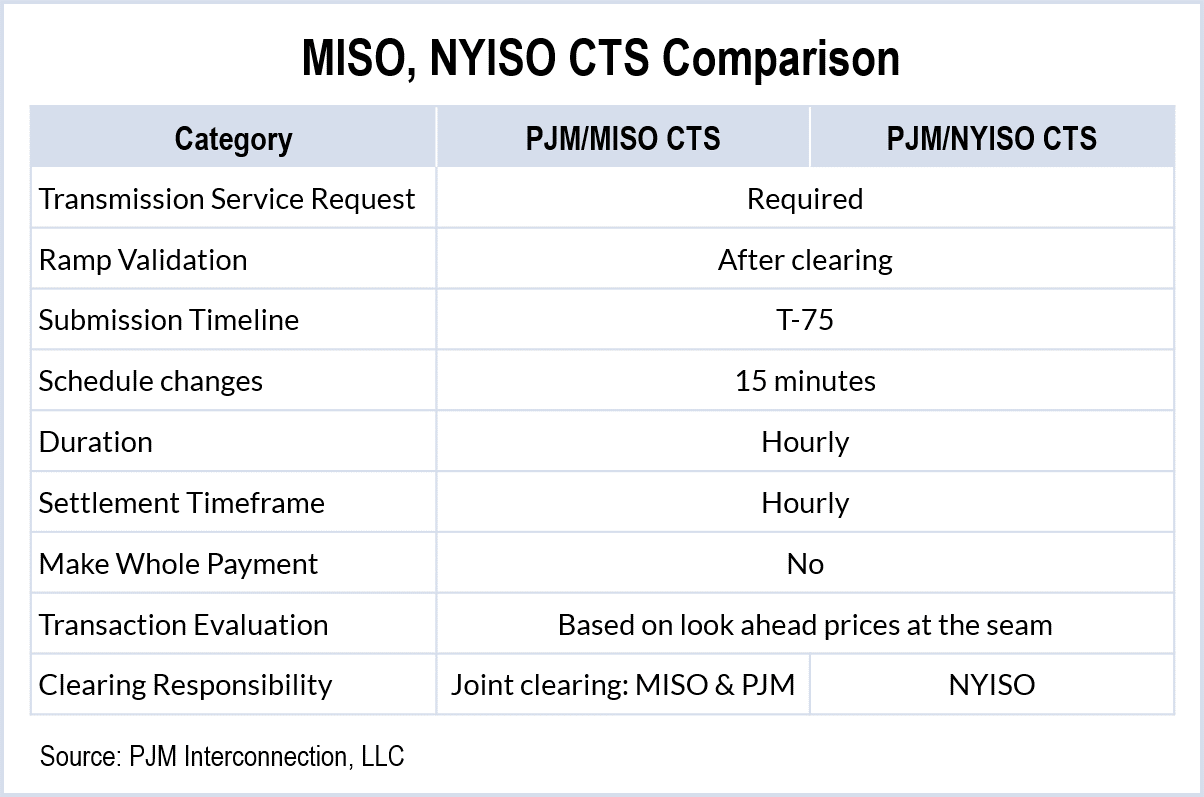
The product is intended to reduce uneconomic flows between PJM and its western neighbor. PJM says almost half of the transactions from PJM into MISO occur when prices are higher in PJM.
Under CTS, traders would be able to submit “price differential” bids that would clear when the price difference between MISO and PJM exceeded a threshold set by the bidder.
PJM outlined its plan to the Market Implementation Committee Friday.
The new product will be in addition to two existing means of trading between the two RTOs: hourly evaluations of traditional wheel-through transactions and intra-hour evaluations of traditional LMP bids and offers. PJM and MISO will require CTS transactions to be submitted 75 minutes before the flow begins. Traditional transactions can be submitted only 20 minutes in advance.
“Market participants can still be a price taker if they feel they have a better idea of future prices than PJM,” said PJM’s Rebecca Carroll.
The CTS product is expected to be similar to the PJM-NYISO offering except that both PJM and MISO will evaluate the trades: only those trades that clear both PJM’s and MISO’s thresholds will clear. NYISO alone is responsible for clearing transactions for the original CTS product.
“Neither one of us [PJM and MISO] do an economic clearing today. We both need to make software changes,” Carroll explained.
PJM and MISO hope to obtain members’ approval in time for a filing with the Federal Energy Regulatory Commission in May 2015. Implementation may not occur until the third quarter of 2016 because of software changes required. “So we need a longer runway to get these software changes implemented,” Carroll said.



